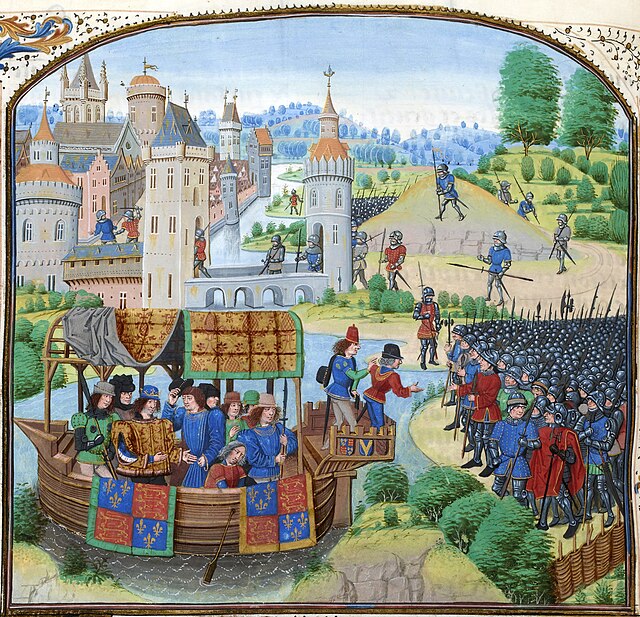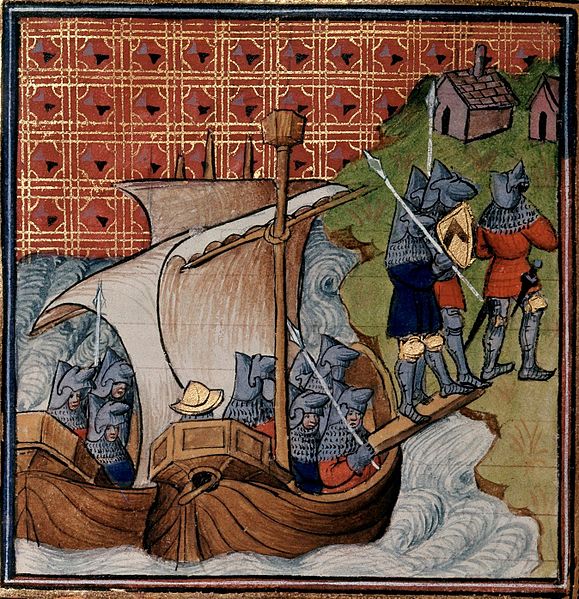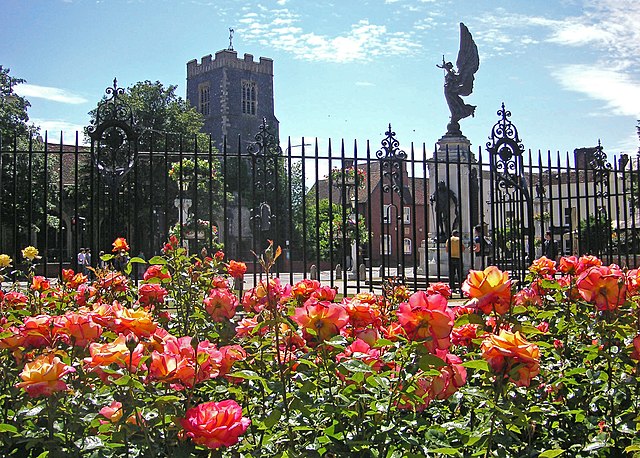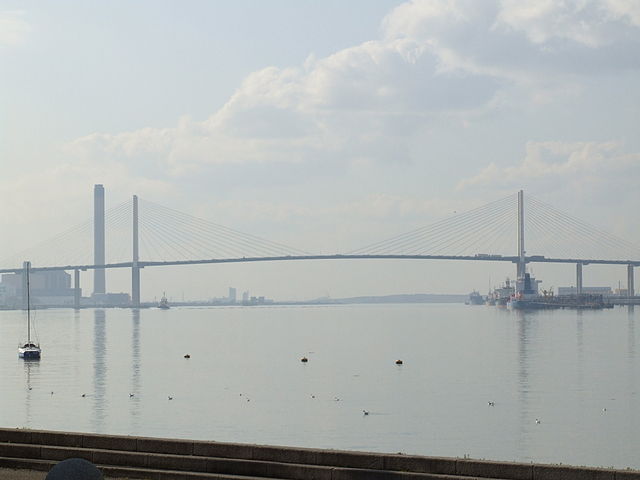The Peasants' Revolt, also named Wat Tyler's Rebellion or the Great Rising, was a major uprising across large parts of England in 1381. The revolt had various causes, including the socio-economic and political tensions generated by the Black Death in the 1340s, the high taxes resulting from the conflict with France during the Hundred Years' War, and instability within the local leadership of London.
The boy-king Richard II meets the rebels on 14 June 1381, in a miniature from a 1470s copy of Jean Froissart's Chronicles.
English soldiers landing in Normandy, c. 1380–1400, during the Hundred Years' War
Peasant longbowmen at practice, from the Luttrell Psalter, c. 1320–1340
15th-century representation of the cleric John Ball encouraging the rebels; Wat Tyler is shown in red, front left
Essex is a ceremonial county in the East of England, and one of the home counties. It is bordered by Cambridgeshire and Suffolk to the north, the North Sea to the east, Kent across the Thames Estuary to the south, Greater London to the south-west, and Hertfordshire to the west. The largest settlement is Southend-on-Sea, and the county town is Chelmsford.
St Peters Chapel, Bradwell. Established by St Cedd, the patron saint of Essex around 662, built on the site of the abandonded Roman fort of Othona
Hedingham Castle, The Norman keep from the other side of the English landscape garden
Colchester occupies the site of Camulodunum, the first major city in Roman Britain and its first capital. Colchester claims to be Britain's first city.
Queen Elizabeth II Bridge spanning the Thames from West Thurrock, Essex, to Dartford, Kent








